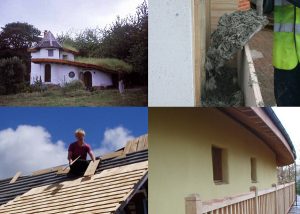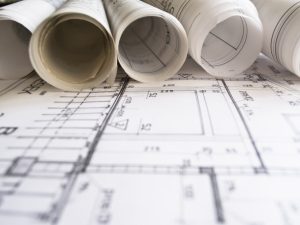Here’s a quick overview of what the Ecological Land Co-op does, before going on to their latest news. The problem that they were formed to solve is that many people who would like to build a home made from local, sustainable materials, harvest their own renewable energy and work the land to produce food, fuel and other organic products for their family and for local markets find it impossible because a) if the land is affordable – i.e. in open countryside – the planning system ensures that they’re not allowed to build a home on it, and b) if the planning system allows them to build a home – i.e. in or around existing settlements – the land is too expensive, and has probably already been snapped up by developers. They are kept off the land, and society continues to be fed largely via a system of non-organic, monoculture agribusiness that is extremely damaging to ecology and to communities.
The Ecological Land Co-op is a small organisation swimming against this current, and we’d like to see them get bigger. They purchase land in the open countryside and apply for planning permission for homes, with the proviso that they will oversee the smallholdings so that they operate sustainably in perpetuity. Plots will never be sold to commuters or second-homers, and smallholders will continue to live sustainably and work the land organically. They currently have one settlement of three smallholdings at Greenham Reach in Devon, and have recently purchased land in Sussex for a second group of smallholdings. Here is a video, and below is the latest news from the ELC.
ELC ON FILM. We are proud to share our new film which introduces viewers to the core team, Executive Directors Zoe Wangler, Cate Chapman, and Oli Rodker, and the work we do.
The Ecological Land Co-operative (ELC) has purchased its second site in East Sussex. Building on the success of their innovative first project (a cluster of three affordable ecological smallholdings at Greenham Reach, Devon), the recent purchase of an 18.5 acre field previously used for intensive maize production marks a significant step in the ELC’s work of securing land for small-scale ecological farming. Such farm businesses are a model of good practice: helping to build a vibrant, living countryside while benefiting both people and planet.
The ELC will now seek planning permission to develop the new site into a new cluster of smallholdings; part of the ELC’s vision for creating 20 ecological smallholdings between now and 2020. The ELC retains the freehold on each smallholding to protect it for agricultural use, and as affordable in perpetuity.
On the purchase of the East Sussex site, Oli Rodker, Executive Director for the Ecological Land Co-operative says: “We are delighted with the purchase of our new site in East Sussex. We can now get on with our plans to use this land for ecological farming where good food, conservation and ecology sit side by side – now and into the future.”
The ELC is a democratic social enterprise working to make land accessible for new entrants to small-scale ecological farming in England. This is achieved by helping overcome two key barriers to those wishing to live with the land: high land prices and planning consent.
Their core business is the creation of small clusters of affordable smallholdings. The model allows the ELC to keep costs low, both through buying larger sites at a lower price per acre, and through distributing the cost of infrastructure, planning applications and ecological site monitoring across a number of smallholdings. The model allows the smallholders to work and learn together and to provide mutual support.
“This land purchase represents the next step in our development of ecological smallholdings in England. Our vision is of a living, working countryside contributing to a biodiverse environment, strong rural communities and a safe, just food system.“ Cate Chapman, Managing Director.
Help spread the word.
Contact: Phil Moore 07564090015 | [email protected]
Photos are available here or on request.
THE ECOLOGICAL LAND CO-OPERATIVE (ELC) is a social enterprise, co-operative in structure, established to address the lack of affordable sites for ecological land-based livelihoods in England. Set up in 2009, the ELC purchases land, obtains planning permission, and installs the infrastructure to create clusters of three or more affordable smallholdings.
Their first project, Greenham Reach, in mid-Devon, was granted planning permission in 2013. Now home to three smallholdings operating as independent businesses but working co-operatively to manage the whole site, Greenham Reach is a living example of ecologically managed land providing truly sustainable land based livelihoods.
For more info about ELC please visit: http://ecologicalland.coop














